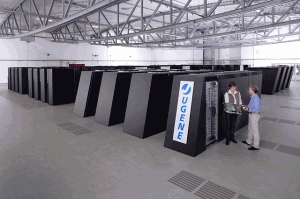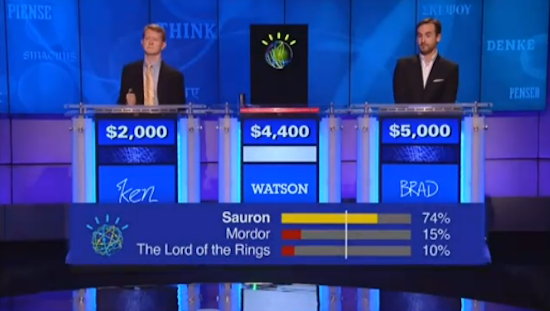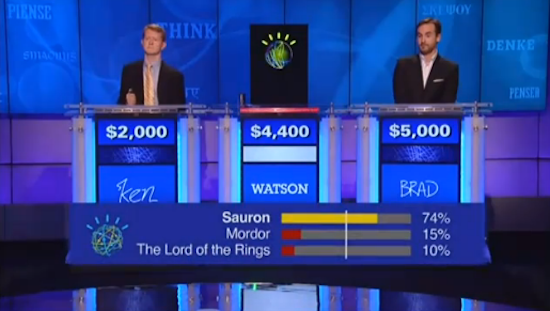 Life Computing Part I – The Technology: Warren Buffett buys $10.7 Billion of IBM
Life Computing Part I – The Technology: Warren Buffett buys $10.7 Billion of IBM
Announced just days ago, investment mogul Warren Buffett has been steadily accumulating a sizeable $10.7 Billion position of tech giant IBM (estimated to be a 5.5% stake). Founded in 1911, IBM established the de-facto look and feel for the modern day PC (personal computer). Holding the most technology-based US patents to date and boasting over 9 research labs worldwide, International Business Machines (IBM) is truly a giant in this sense.
IBM has its early beginnings rooted in personal computing hardware but over the years the company has expanded their reach into many different fields, one of which I feel will become more and more prominent in the very near future. Since its departure from the “PC” IBM has re-directed a significant amount of focus in Supercomputers and the Intelligent Software to run them. Supercomputers are thousands of specialized smaller computers that are tied together and work in concert to crunch numbers. These systems are custom tailored for large research institutions or government bodies. The collective processing powers of these nested hives are used to test the effects of nuclear explosions in a virtual world or predict the effects of global warming on weather patterns.
amount of focus in Supercomputers and the Intelligent Software to run them. Supercomputers are thousands of specialized smaller computers that are tied together and work in concert to crunch numbers. These systems are custom tailored for large research institutions or government bodies. The collective processing powers of these nested hives are used to test the effects of nuclear explosions in a virtual world or predict the effects of global warming on weather patterns.
Apparently, Warren Buffett is not the only one that has taken an interest in what Big Blue has been working on. The US Defense Advanced Research Projects Agency (DARPA ) has tapped IBM to develop the future of computing appropriately named Systems of Neuromorphic Adaptive Plastic Scalable Electronics (Synapse) or Neuro-chip for short. The new Neuro-chip architecture is designed to function much like a human brain in the way that it can learn to re-wire itself over time become smarter. Many believe this new architecture could possibly represent a paradigm shift in computing technology.
On the software front, IBM has pioneered the development of an Intelligent Software Program called Watson which utilizes advanced data management and algorithms to analyze written human language and in essence teach itself to understand the construct of human speech. When asked a  question Watson can interpret the question for context, search its memory, analyze the results, rank the results and intelligently formulate an accurate answer to the question (this is obviously the simplified explanation). Unlike a web search engine that works by finding key words from your search criteria and presenting a pool of matches for you to wade through and determine the correct answer that is in context to your question, Watson will provide you with a direct answer instead (Think of Star Trek, when Captain Kirk asks the ships computer an abstract question and the computer responds with a specific answer). Watson has recently appeared on Jeopardy and destroyed its human competition in a practice round.
question Watson can interpret the question for context, search its memory, analyze the results, rank the results and intelligently formulate an accurate answer to the question (this is obviously the simplified explanation). Unlike a web search engine that works by finding key words from your search criteria and presenting a pool of matches for you to wade through and determine the correct answer that is in context to your question, Watson will provide you with a direct answer instead (Think of Star Trek, when Captain Kirk asks the ships computer an abstract question and the computer responds with a specific answer). Watson has recently appeared on Jeopardy and destroyed its human competition in a practice round.
Just as the power of personal computing has permeated almost every facet of our daily lives, these two technologies will soon change our lives in ways not yet imagined. We have already become used to the accessibility of the worlds collective knowledge at our fingertips by way of a Google search. As these systems are evolved within the education, healthcare and government sectors we will soon see the day when we all have access to our very own central computer that we can ask complex questions and get an accurate answer without having to spend hours sifting through piles of out of context and obscure websites.
Contributor, designer & admin for JohnHart Gazette.


1 comments